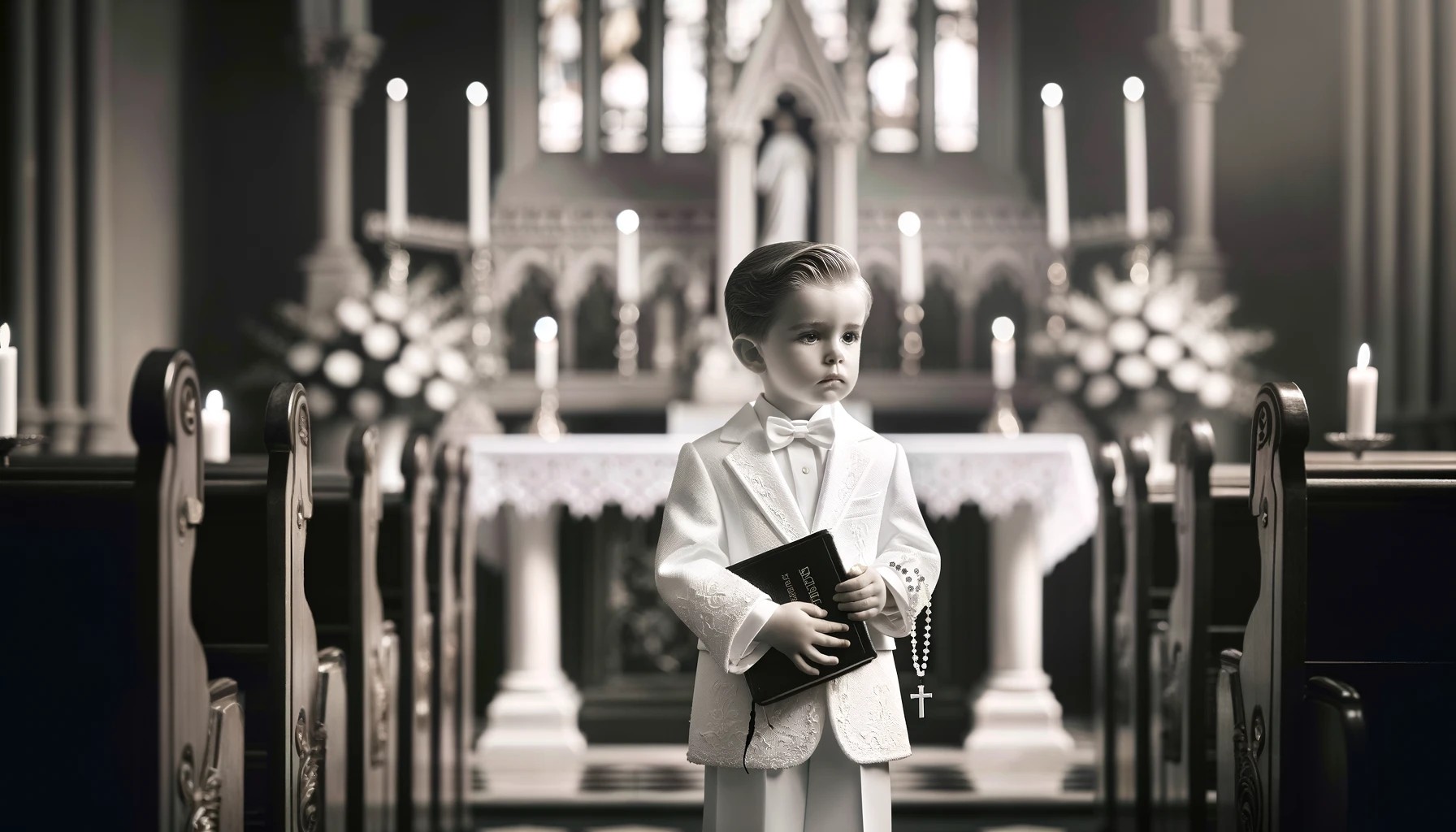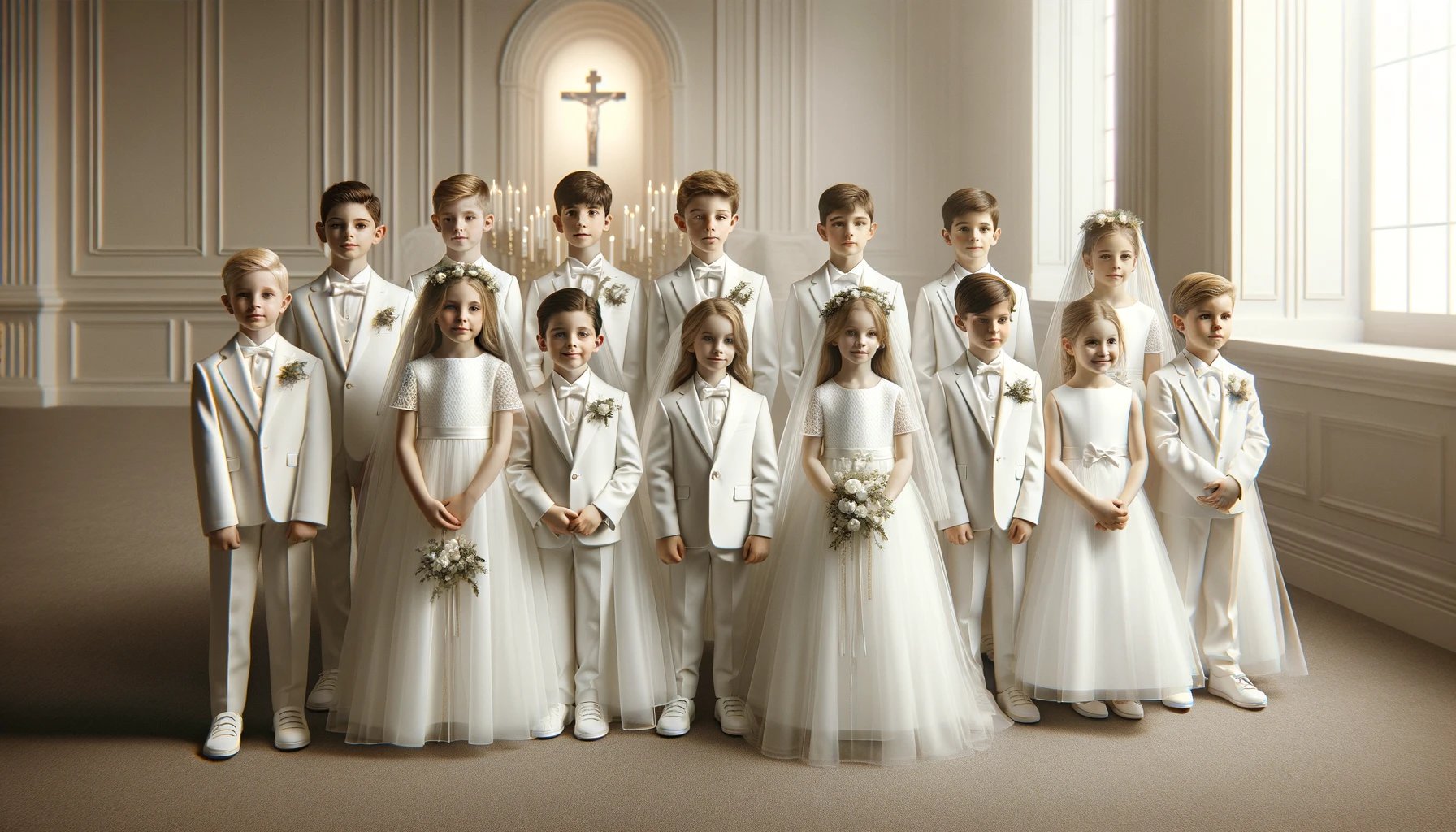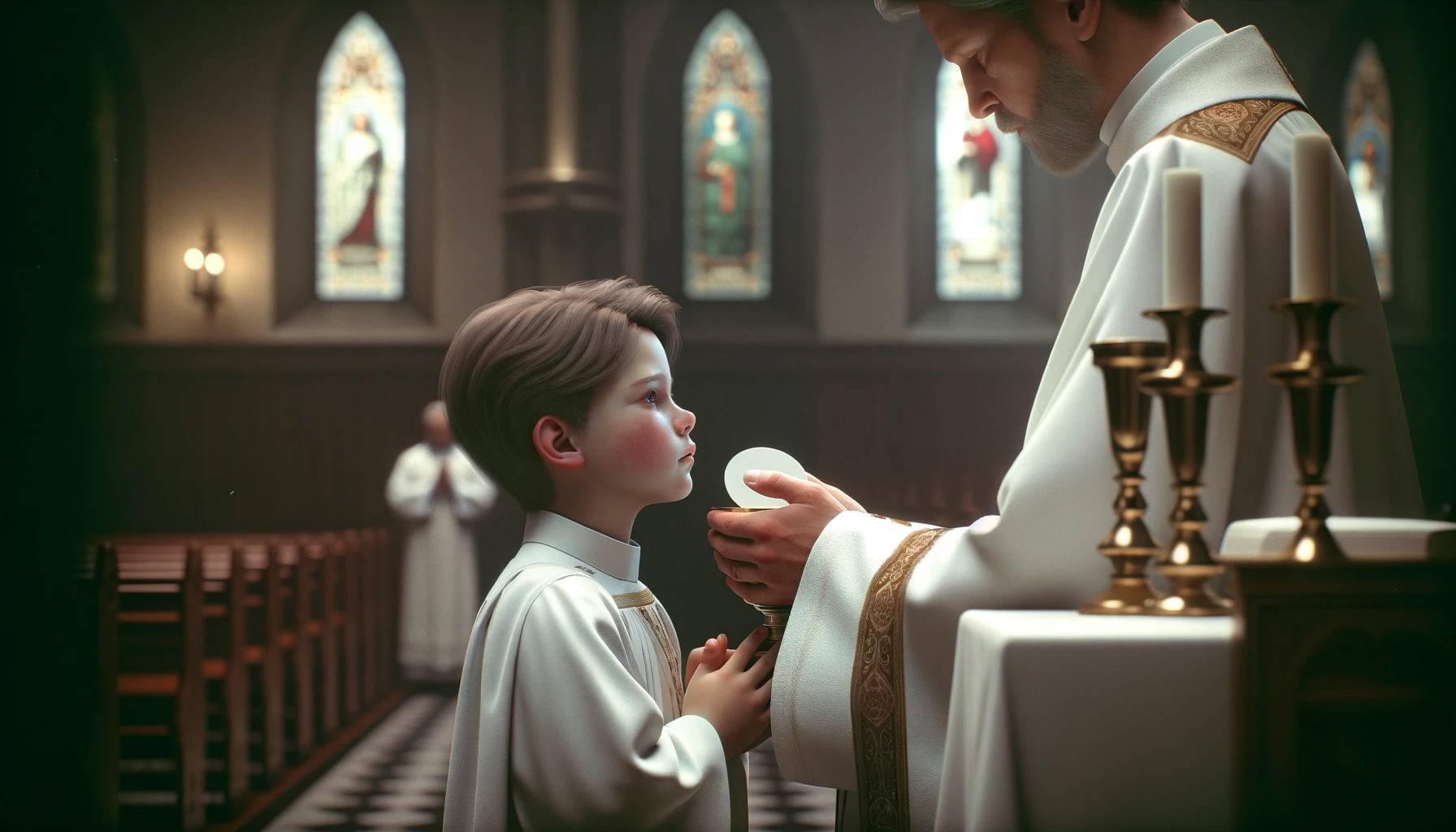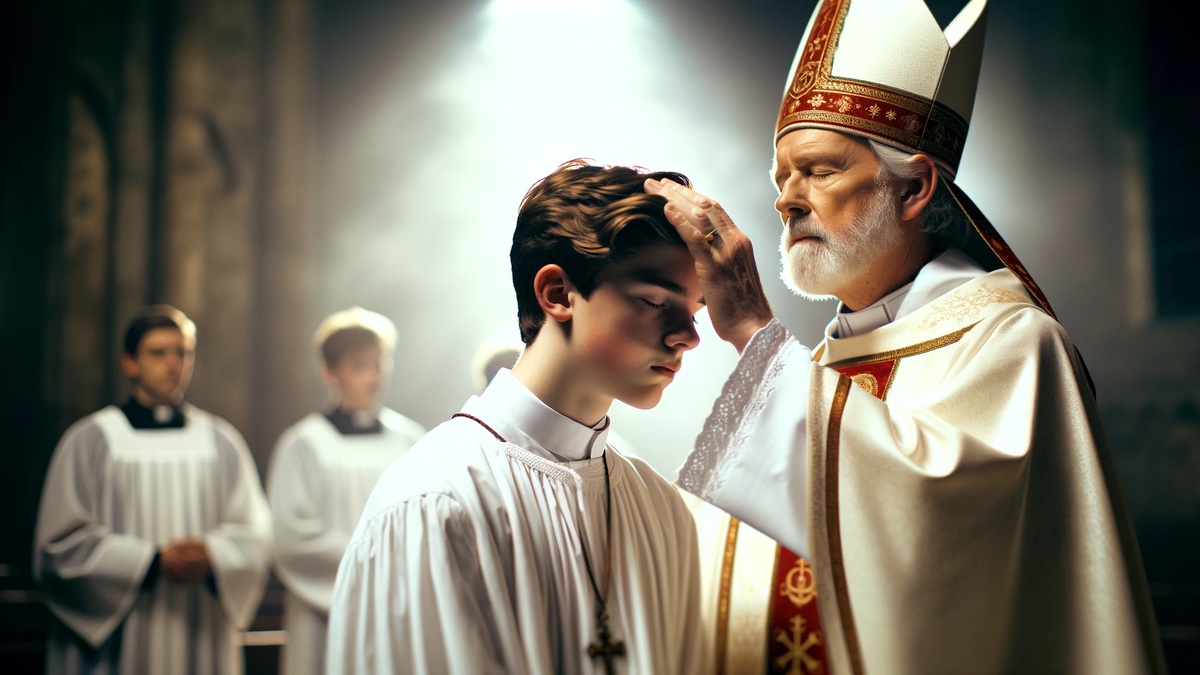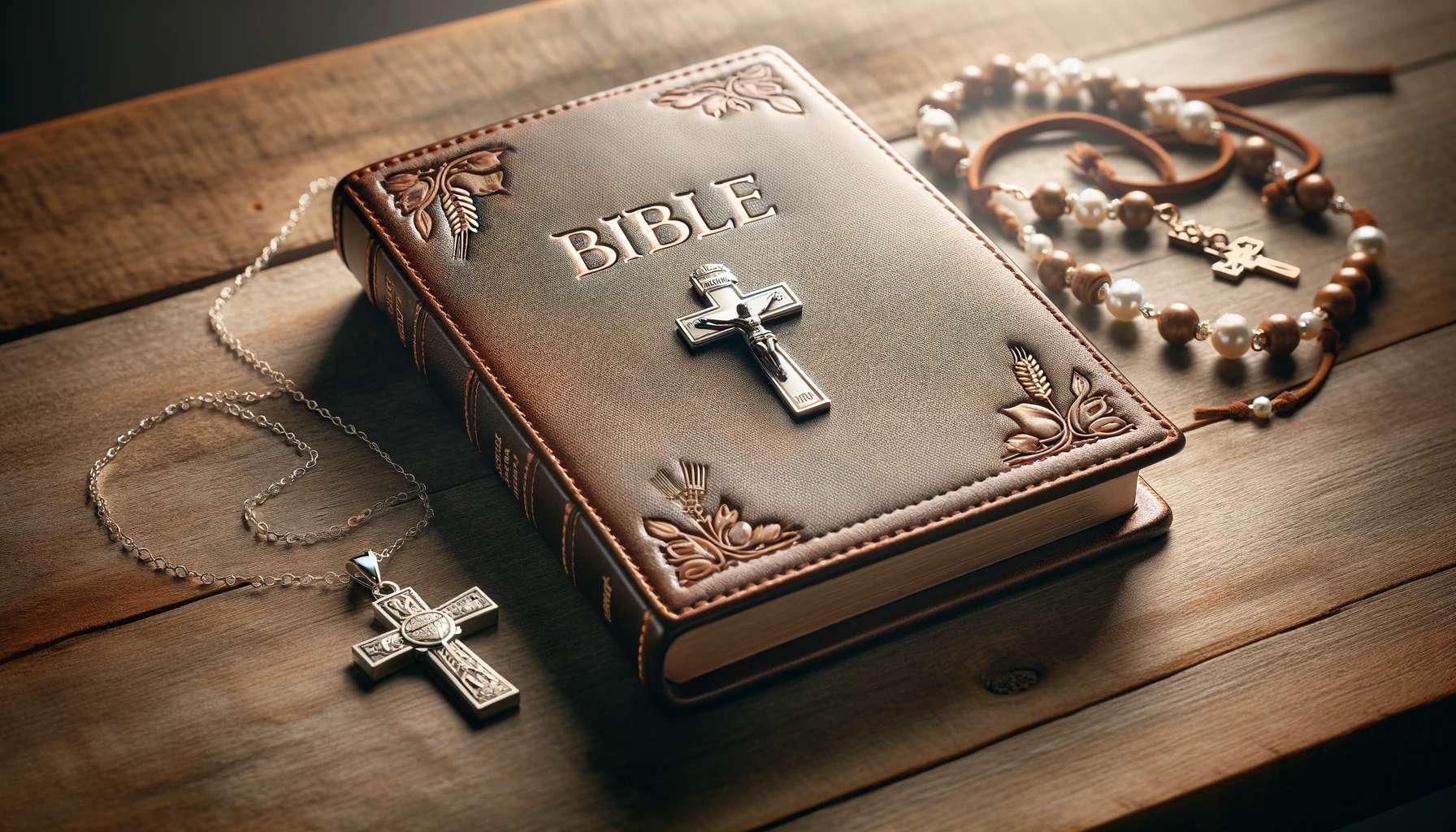Home>Theology and Spirituality>At What Age Do You Get First Communion


Theology and Spirituality
At What Age Do You Get First Communion
Published: February 25, 2024
Ericka Andersen, an editor at Christian.net, expertly merges digital strategy with content creation, focusing on faith and societal issues. Her communication skills enhance the platform's engaging narratives, fostering meaningful dialogue on belief's impact on society.
Discover the significance of first communion and the age at which it typically occurs. Explore the traditions and spiritual importance in theology and spirituality.
(Many of the links in this article redirect to a specific reviewed product. Your purchase of these products through affiliate links helps to generate commission for Christian.net, at no extra cost. Learn more)
Table of Contents
Introduction
First Communion is a significant milestone in the lives of young Catholics, marking their initiation into the Eucharist, one of the central sacraments of the Catholic Church. This sacred event holds deep spiritual and cultural importance, symbolizing the individual's acceptance into the faith community and their readiness to partake in the body and blood of Christ. The age at which children receive their First Communion varies across different cultures and traditions, often sparking discussions and reflections on the ideal timing for this momentous occasion.
The journey towards First Communion is a time of learning, growth, and spiritual development for children. It represents a pivotal stage in their religious education, as they deepen their understanding of the Eucharist and its significance within the Catholic faith. Families, parishes, and communities come together to support and guide these young individuals as they prepare to receive the sacrament, fostering a sense of unity and shared devotion.
As we delve into the topic of First Communion, it's essential to explore its historical roots, the profound significance it holds within the Catholic Church, and the diverse cultural practices surrounding this sacred rite of passage. Additionally, we will examine the factors that influence the age at which First Communion is administered, shedding light on the varying perspectives and considerations that shape this pivotal moment in a child's spiritual journey.
Join us on this enlightening exploration of First Communion, as we unravel the rich tapestry of traditions, beliefs, and customs that encompass this cherished sacramental experience. Through this journey, we aim to gain a deeper appreciation for the profound impact of First Communion on the lives of young Catholics and the broader religious community.
Read more: What To Get A Girl For First Communion
Historical Background of First Communion
The historical roots of First Communion can be traced back to the early centuries of Christianity, where the Eucharist, or Holy Communion, held immense significance within the faith community. In the early Christian Church, the reception of the Eucharist was a central aspect of communal worship, symbolizing the spiritual nourishment and unity of believers. As Christianity evolved and formalized its sacramental practices, the concept of First Communion gradually took shape, marking the initiation of young members into the profound mystery of the Eucharist.
During the Middle Ages, the age at which children received First Communion varied widely, often occurring much later than in contemporary times. The sacramental practices of the Church continued to develop, and the Council of Trent in the 16th century played a pivotal role in shaping the formalized process of receiving First Communion. The Council emphasized the importance of early initiation into the Eucharist, advocating for the reception of this sacrament as soon as children were deemed capable of understanding its significance.
In response to the Council of Trent's directives, the age for First Communion gradually shifted to a younger demographic, aligning with the Church's emphasis on nurturing the faith of young believers from an early age. This shift reflected a deeper theological understanding of the Eucharist and its role in the spiritual formation of children within the Catholic tradition.
The historical evolution of First Communion also saw the development of specific rituals, traditions, and catechetical programs designed to prepare children for this sacred milestone. The First Communion ceremony itself became a cherished communal event, often accompanied by special garments, family celebrations, and religious instruction to ensure that children were spiritually and emotionally prepared to receive the Eucharist.
Throughout history, the concept of First Communion has evolved in response to theological, cultural, and pastoral considerations, shaping the way this sacrament is approached and celebrated within the Catholic Church. Today, the historical legacy of First Communion continues to resonate, underscoring the enduring significance of this sacred initiation into the Eucharist for young Catholics around the world.
The Significance of First Communion in the Catholic Church
The significance of First Communion in the Catholic Church extends far beyond a ceremonial rite of passage; it embodies profound spiritual, communal, and developmental implications for young Catholics. At its core, First Communion represents the moment when children, typically around the age of seven or eight, partake in the body and blood of Christ for the first time, marking their initiation into the Eucharist. This sacramental experience holds multifaceted significance within the Catholic faith, shaping the spiritual identity and journey of the individual and the broader faith community.
First and foremost, First Communion serves as a pivotal milestone in a child's religious formation, signifying their growing understanding of the Eucharist and their readiness to actively participate in the sacramental life of the Church. It represents a foundational step in their ongoing spiritual development, fostering a deeper connection to the teachings and traditions of Catholicism. Through the process of preparing for First Communion, children engage in religious education, reflection, and prayer, cultivating a sense of reverence and understanding for the sacred mysteries of the Eucharist.
Furthermore, the reception of First Communion holds profound communal significance within the Catholic Church. It symbolizes the young individual's integration into the faith community, emphasizing their belonging and active participation in the life of the Church. The communal aspect of First Communion is often celebrated within the parish setting, uniting families, friends, and fellow parishioners in support of the children as they take this significant step in their faith journey. This communal celebration reinforces the interconnectedness of the faithful and the shared joy in witnessing the next generation embrace their Catholic identity.
From a theological perspective, First Communion underscores the belief in the real presence of Christ in the Eucharist, affirming the central role of this sacrament in the spiritual nourishment and sustenance of the faithful. Through their participation in First Communion, children are invited to encounter the living Christ in the Eucharist, fostering a personal relationship with Jesus and deepening their understanding of the sacrificial love embodied in the Eucharistic celebration.
In essence, the significance of First Communion in the Catholic Church encompasses the spiritual, communal, and theological dimensions of the Eucharist, shaping the faith identity of young Catholics and fostering a sense of belonging within the broader faith community. This sacred milestone serves as a foundational moment in the ongoing journey of faith, instilling a profound reverence for the Eucharist and nurturing the spiritual growth of the next generation of believers.
Different Ages for First Communion in Various Cultures
The age at which children receive their First Communion varies significantly across different cultures and traditions, reflecting diverse theological, historical, and societal influences. These variations offer a rich tapestry of practices and perspectives, underscoring the dynamic nature of First Communion as a global sacramental experience.
In many Western European and North American countries, the traditional age for First Communion often falls around seven to eight years old, aligning with the age of reason or the ability to understand the significance of the Eucharist. This age range is rooted in the theological understanding of children's cognitive development and their capacity to grasp the spiritual depth of the Eucharistic mystery. In these cultures, First Communion is often celebrated as a significant family event, marked by religious ceremonies, festive gatherings, and the adornment of special attire, symbolizing the child's readiness to partake in the Eucharist.
Conversely, in some Eastern European and Latin American cultures, the age for First Communion tends to be slightly older, typically around nine to twelve years old. This variance is influenced by cultural customs, historical practices, and the emphasis on additional religious instruction and preparation before receiving the Eucharist. The extended period of catechesis and spiritual formation underscores the importance placed on thorough readiness and comprehension of the Eucharistic sacrament within these cultural contexts.
In certain African and Asian cultures, the age for First Communion can vary even further, often aligning with specific cultural rites of passage or community traditions. The timing of First Communion in these regions may be intricately woven into broader cultural ceremonies or seasonal observances, reflecting the integration of Christian sacramental practices within indigenous cultural frameworks.
Furthermore, within indigenous and diasporic communities, the age for First Communion may be influenced by the interplay of cultural heritage, religious syncretism, and the preservation of ancestral traditions. This dynamic interweaving of cultural elements shapes the age at which children partake in their First Communion, reflecting the multifaceted identities and spiritual journeys of these communities.
Overall, the diverse ages for First Communion across various cultures highlight the nuanced interplay of religious, cultural, and social dynamics, underscoring the adaptability and universality of the sacramental experience. These variations enrich the tapestry of global Catholicism, showcasing the vibrant diversity and rich traditions that characterize the celebration of First Communion around the world.
Factors Affecting the Age of First Communion
The age at which children receive their First Communion is influenced by a myriad of factors that encompass theological, cultural, historical, and pastoral considerations. These diverse influences shape the varying practices and traditions surrounding the administration of First Communion, reflecting the dynamic interplay of beliefs, customs, and societal dynamics within the Catholic Church.
Read more: What Do Godparents Do At First Communion
Theological Considerations
Theological perspectives play a pivotal role in determining the age at which First Communion is administered. Central to this is the concept of the "age of reason," which refers to the developmental stage at which children are deemed capable of understanding the significance of the Eucharist. This theological criterion forms the basis for establishing an appropriate age for First Communion, emphasizing the importance of cognitive readiness and spiritual comprehension in partaking in the sacrament.
Cultural and Historical Practices
Cultural and historical traditions significantly influence the age at which First Communion is celebrated within different communities. These practices are often deeply rooted in the historical evolution of religious customs, local traditions, and the interweaving of Christian sacramental rites with indigenous cultural ceremonies. The age for First Communion may be intricately linked to specific cultural milestones or seasonal observances, reflecting the unique heritage and customs of diverse cultural contexts.
Pastoral and Catechetical Approaches
Pastoral and catechetical considerations play a crucial role in determining the age for First Communion within parishes and dioceses. The approach to religious education, catechesis, and spiritual formation for children shapes the timeline for preparing them to receive the Eucharist. Pastoral leaders and educators assess the spiritual readiness of young individuals, tailoring catechetical programs to ensure that children are adequately prepared to embrace the significance of First Communion within the context of their faith journey.
Ecclesiastical Guidelines and Norms
Ecclesiastical authorities, such as bishops' conferences and diocesan councils, provide guidelines and norms that inform the age for First Communion within specific regions or jurisdictions. These directives may stem from pastoral discernment, theological reflection, and the pastoral needs of the faithful within a given diocese or cultural milieu. The ecclesiastical norms serve as a framework for harmonizing the administration of First Communion while respecting the diverse cultural and pastoral realities present within the Catholic Church.
Read more: What Do You Do In Your First Communion
Family and Community Practices
Family and community traditions also influence the age at which First Communion is celebrated, often shaping the communal dynamics and familial expectations surrounding this sacramental milestone. Cultural customs, familial religious practices, and the significance attributed to First Communion within the broader community contribute to the varying ages at which children partake in this sacred rite. The involvement of families and communities in preparing children for First Communion underscores the communal nature of this sacramental journey.
In essence, the age of First Communion is shaped by a complex interplay of theological, cultural, pastoral, and communal factors, reflecting the diverse tapestry of beliefs and practices within the Catholic Church. This multifaceted landscape underscores the adaptability and richness of First Communion as a sacramental experience that resonates deeply within diverse cultural and spiritual contexts.
Conclusion
In conclusion, the sacrament of First Communion stands as a profound and multifaceted milestone within the Catholic Church, embodying rich historical, theological, and cultural dimensions. This sacred initiation into the Eucharist holds deep significance for young Catholics, marking their spiritual growth, communal integration, and encounter with the living Christ in the Eucharistic celebration.
The historical background of First Communion reveals its evolution from early Christian practices to the formalized sacramental rites, reflecting the enduring importance placed on the initiation of young believers into the Eucharist. The Council of Trent's influence and subsequent developments shaped the age at which children receive First Communion, emphasizing the theological and pastoral considerations underlying this sacramental journey.
The significance of First Communion within the Catholic Church encompasses its role in nurturing the faith identity of children, fostering communal unity, and affirming the real presence of Christ in the Eucharist. This sacramental experience serves as a foundational step in the ongoing spiritual development of young Catholics, instilling a profound reverence for the Eucharist and fostering a sense of belonging within the broader faith community.
The diverse ages for First Communion across various cultures underscore the dynamic interplay of theological, cultural, and societal influences that shape this sacramental milestone. These variations enrich the global tapestry of Catholicism, showcasing the vibrant diversity and rich traditions that characterize the celebration of First Communion around the world.
Furthermore, the age for First Communion is influenced by a myriad of factors, including theological considerations, cultural and historical practices, pastoral approaches, ecclesiastical norms, and family and community traditions. This complex interplay reflects the adaptability and universality of the sacramental experience, highlighting the diverse tapestry of beliefs and practices within the Catholic Church.
In essence, First Communion represents a sacred bridge between the individual's faith journey and the communal life of the Church, embodying the timeless significance of the Eucharist in the lives of young Catholics. As children embark on this transformative spiritual milestone, they carry forward the legacy of First Communion, embracing the enduring traditions and profound spiritual truths that unite them with the broader faith community.
Through its historical legacy, profound significance, diverse cultural expressions, and multifaceted influences, First Communion continues to resonate as a cherished and formative sacramental experience, shaping the faith identity and spiritual journey of young Catholics across the globe.



